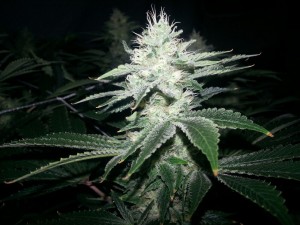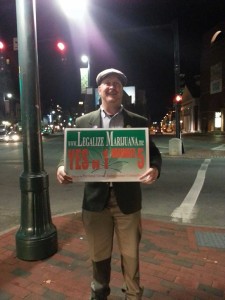Newsflash… Portland declared marijuana legal.
Yet, after the first year of being legal, the number of marijuana citations in the city actually went up. In fact, citations increased by 45%, from 33 citations in 2012-2013, to 48 in 2013-2014.
It is safe to say legalizing marijuana on the local level, at least in Portland, did not reduce the effect of prohibition.
The Portland Green Independent Party first pushed the issue of decriminalization in 2011. It failed to make the ballot by a handful of signatures.
The Greens came back in 2013 with a legalization bill that garnered the support of the Marijuana Policy Project and East End State Representative Dianne Russell.
On Election Day 2013, voters overwhelmingly supported the passage of the new City ordinance. It allows possession of up to 2.5 ounces of marijuana by adults 21 and older. The ordinance prohibits the use of marijuana in public, and sets no provision allowing for the purchase or sale of the substance.
No use in public, no use by minors and adults under 21, and no protections if you have already committed a crime.
Marijuana is still not legal, but arguably, mostly decriminalized in Portland. Mostly, because as long as you are privately using and you are old enough to know better you will not get in trouble. Maybe not much has changed?
As part of the new ordinance, the Mayor must report to the City Council every October on the effect of legalization.
In the October 2014 report, Police Chief Michael Sauschuck states that, both before and after the ordinance, officers have used their discretion with marijuana-related offenses, “Officers are not seeking out violations of Maine’s civil possession statue nor are they failing to enforce the law when the situation requires it.”
Maybe the police do not seem to think much has changed, but others disagree.
“Portland sent a message that the state is ready to move forward, and I’ve heard from a number of Portland residents who are quite proud they could be part of that,” says Rep. Diane Russell.
“So yes, I think [the Portland ordinance] has been effective. It changed the debate at the state and national level.”
The Green Party, who started this effort, meant the victory to be more than a moral one. Greens and the ACLU of Maine–another partner in the 2013 initiative–stated during their campaign for the bill that they wanted to protect nonviolent residents from having a federal criminal record. A marijuana offense, even in a state where it is decriminalized, could lead to the loss of welfare benefits, the inability to receive student grants and loans, or greater difficulty finding a job.
“Clearly we need to change the state law…” says West End Councilor Dave Marshall. Councilor Marshall worked with the Greens and helped to orchestrate the legalization effort in Portland.
Councilor Marshall and many others agree that Portland’s effort was just one step in a longer process.
Legalization at the state level is the next logical step to achieve the goals of the movement that legalized weed here in Portland.






